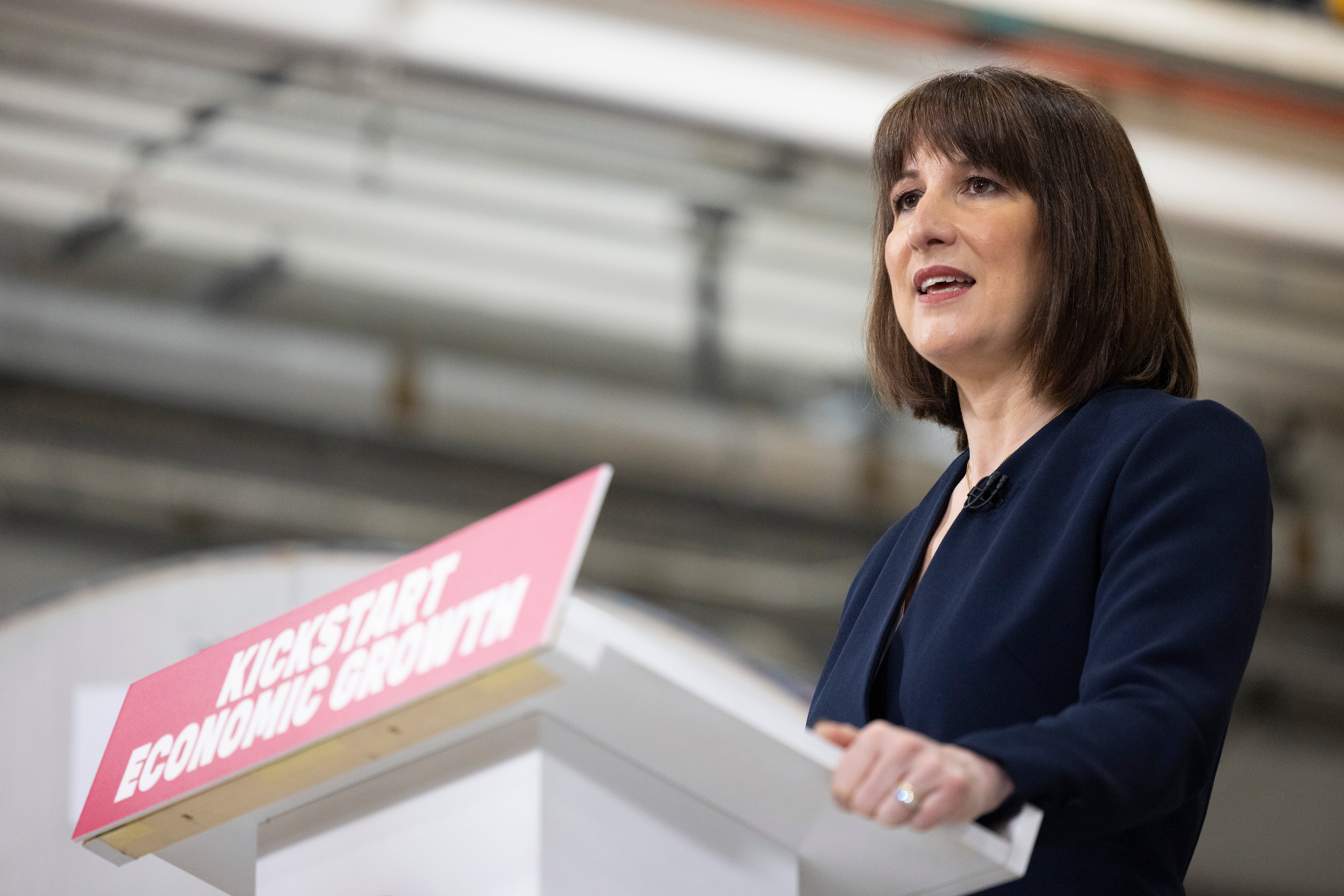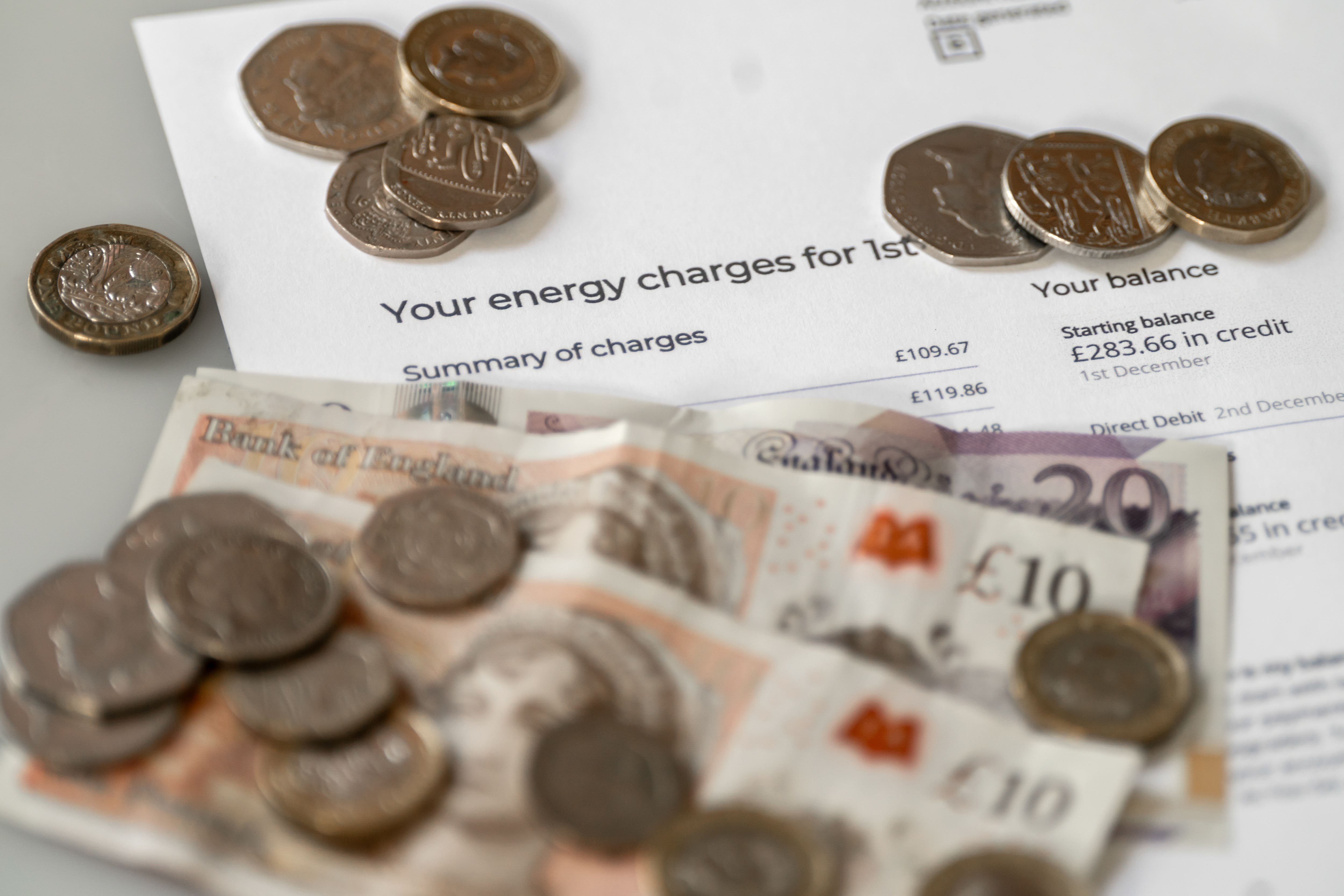The Bank of England’s chief economist is set to address UK’s economic stagnation, which has prompted fresh gloom for Rachel Reeves.
On Thursday, the bank announced a cut in interest rates from 4.75 per cent to 4.5 per cent, but while this has been a boost to mortgage-holders, the economy is forecasted to grow by just 0.75 percent.
This is just half the figure that was initially projected in November, while unemployment is expected to rise over the next two years to just below five per cent.
Inflation is also expected to “rise quite sharply” later this year as gas prices rise and while a recession is forecast to be narrowly avoided, the figures are far from positive for the Chancellor.
In a statement yesterday, Ms Reeves said the interest rate cut was “welcome news” but stressed she was “still not satisfied with the growth rate”.
It also comes as UK house prices increased by 0.7 per cent month-on-month in January to reach a new record average high and sit just shy of £300,000, according to an index.
ICYMI | FTSE 100 notches new record after Bank of England cuts rates
The FTSE 100 reached a record high on Thursday after the Bank of England announced that it is cutting interest rates.
London’s blue-chip index gained 104 points to finish the day at 8,727, or a 1.2% rise.
It comes after the Bank cut rates to 4.5%, but presented a gloomy economic outlook for the UK over the next year.
Policymakers said economic growth is going to be half as much as they previously thought, at just 0.75%, while interest rates are going to rise faster than expected.
The pound plunged on the announcement, falling more than 1.1% against the dollar before recovering to about 0.6% down at the close of trading, at 1.244. It was 0.3% down against the euro at 1.199.
Nonetheless, governor Andrew Bailey said the Bank stood ready to cut rates again this year, boosting the FTSE.
Jabed Ahmed7 February 2025 12:02
Mapped: Most expensive region for house prices revealed
House prices across the country have hit record highs and sit just shy of £300,000, according to the latest index.
The average property price in January was £299,138, and on an annual basis, prices rose by 3.0 per cent in the past year, according to Halifax.
Here are the most expensive, and cheapest, regions to buy a house in the UK:
Tom Barnes7 February 2025 11:35
Landlords should foot ‘significant’ part of energy efficiency bill
Landlords should foot a “significant” amount of the bill to meet energy efficiency standards outlined in Government proposals, Ed Miliband has said.
Under the plans put out for consultation, all private landlords in England and Wales will pay a maximum £15,000 cap to meet energy performance certificate (EPC) C or above by the end of the decade.
The Government says the proposals could save renters £240 a year on average on their energy bills, and lift up to half a million households out of fuel poverty, as they will not have to spend so much heating cold, draughty homes.
Landlords would not have to spend more than £15,000 and there is potential for a lower £10,000 cap if renters are charged lower rents or homes are in a lower council tax band under the plans.
EPC E is currently the required level.
Landlords have said a “realistic timetable” is needed to meet the higher rating after the Government announcement.
Holly Evans7 February 2025 11:14
Ed Miliband U-turns on Heathrow expansion after previous opposition
Ed Miliband has now backed plans for a third Heathrow runway in a U-turn after his long-held objections to the expansion.
Read the full article from my colleague Jabed Ahmed here:
Holly Evans7 February 2025 10:49
UK house prices jump to new record high in January
The average property price was £299,138 as house prices increased by 0.7 per cent month-on-month.
While house prices may have increased, annual growth slowed to three per cent, which is the slowest rate since July 2024.
Read the full article here:
Holly Evans7 February 2025 10:35
Rachel Reeves ‘not satisfied’ with growth rate while inflation set to rise
The UK economy is only set to grow 0.75 per cent this year, down from a previous estimate of 1.5 per cent, before accelerating again in 2026 and 2027.
Chancellor Rachel Reeves said she is “not satisfied” with the growth rate, after the Government made growing the economy its top priority last year.
To compound the issue, inflation is rising faster than expected, now set to hit a peak of 3.7 per cent in late summer, before gradually starting to fall again.
The jump in inflation, which measures the rate of price rises across the economy, is mainly down to higher-than-expected energy prices, as well as rising water bills and bus fares.
Inflation is set to only fall back to the Bank’s 2 per cent target in the final quarter of 2027, it said, about six months later than previously thought.

Holly Evans7 February 2025 10:27
Bills will keep rising without switch to home-grown power, Miliband suggests
Energy Secretary Ed Miliband has suggested he fears “bills will keep rising” without a switch to “clean home-grown power”.
On Thursday, a jump in inflation was accredited to higher-than-expected energy prices, as well as rising water bills and bus fares.
It came as the Bank of England cut interest rates to 4.5 per cent but painted a gloomy picture for the UK economy overall.
Former Labour leader Mr Miliband told the BBC that the UK is in the “grip” of markets run by “petro-states” and home-sourced energy could help “reassert” control.
Separately, he also said it is the “right thing” for the UK to keep oil and gas fields that are already licensed operating, but that “for the future” there will be a shift away from fossil fuels.

Asked on BBC Breakfast about rising bills and the Bank of England’s judgments on Thursday, Mr Miliband said: “What we are seeing in the global fossil fuel markets is prices up 60 per cent compared to a year ago. That’s because of geopolitical events in part.
“This is our whole point. I fear that bills will keep rising – and […] this is our whole point – which is the only way to bring bills down, the only way to get control back, is to have clean, home-grown power that we control.
“Because, at the moment, we’re in the grip of markets that we don’t control, run by petro-states and dictators, and that is what is happening.
“So, global markets are seeing fossil fuel prices rise and that is having an impact on British consumers.”
He added: “The only way we reassert that control is by having this clean, home-grown power.”
Holly Evans7 February 2025 10:14
Gloomy picture ahead for UK economy as inflation due to rise
The Bank of England has cut interest rates to 4.5%, but painted a gloomy picture for the UK economy by halving its growth forecast for this year and predicting a surge in inflation.
Policymakers voted for a quarter-point reduction on Thursday, after similar cuts in August and November last year, bringing the base interest rate to its lowest level in more than 18 months.
The base rate helps dictate how expensive it is to take out a mortgage or a loan, while it also influences the interest rates offered by banks on savings accounts.
Prime Minister Sir Keir Starmer said the move would give people “more money in their pockets”.
However, the Bank also warned that more people will be out of work, as firms swallow higher taxes and wage increases announced at the October Budget.
Holly Evans7 February 2025 10:08





